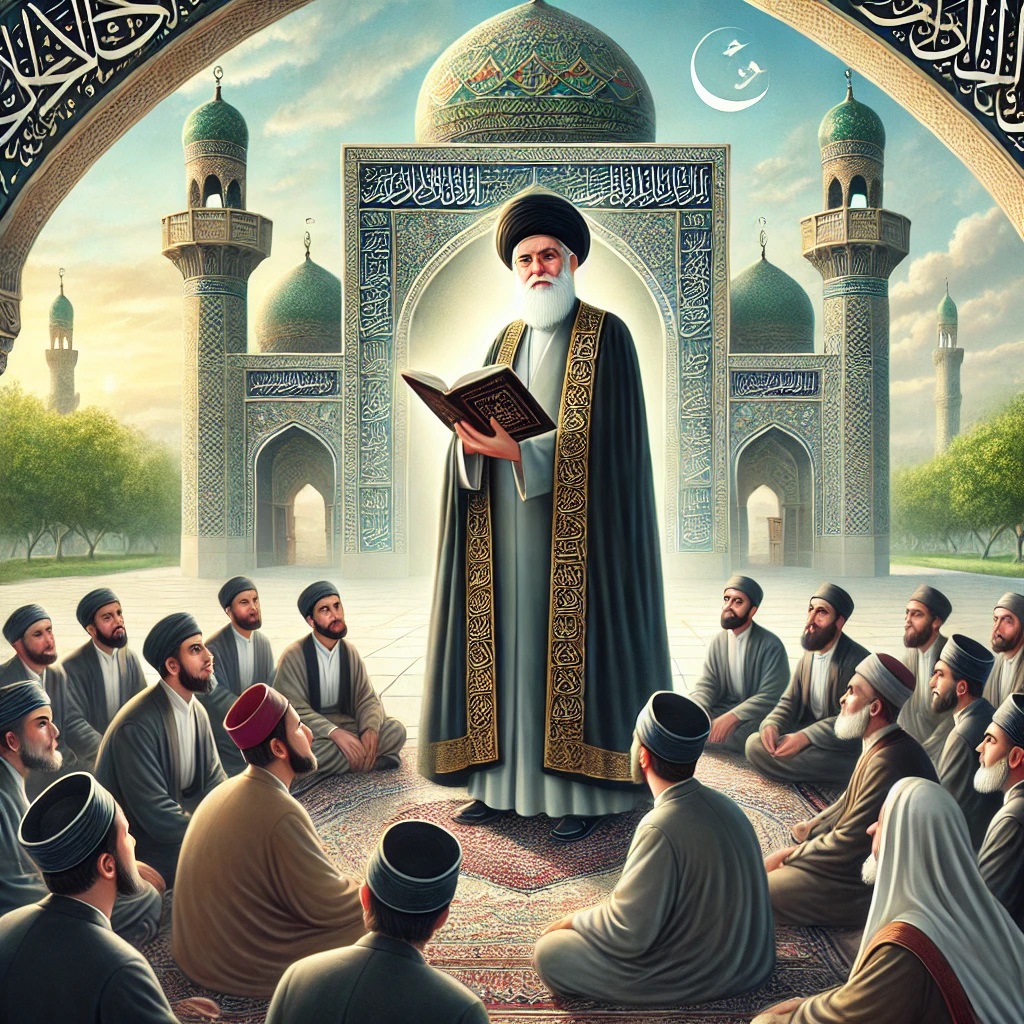What is taqleed?
Taqleed literally means "to follow someone". In Islamic legal terminology it means to follow a Jurist (mujtahid) in religious laws and commandments as he has derived them.
Who is a mujtahid?
A mujtahid is a person who is an expert in Islamic jurisprudence (fiqh); he is also called a faqīh. It is necessary for the mujtahid that is followed to be male, a follower of the 12 divinely appointed Imams, adult, sane, of legitimate birth, living and just (‘adil). It is also necessary for a mujtahid who is followed to be an a’lam, that is, one who is more proficient in understanding the divine laws than any other contemporary mujtahid.
Why we should do taqleed
Taqleed is not compulsory upon everyone. However, in matters of religious laws, apart from those laws that are clearly defined or those that are indisputable, a person must:
- either be a mujtahid himself, capable of inferring and deducing laws from religious sources and evidence;
- or if he is not a mujtahid himself, he should follow one, i.e. he should act according to the verdicts (fatawa) of a mujtahid;
- or if he is neither a mujtahid or a follower (muqallid), he should act with such precaution that would assure him that he has fulfilled his religious obligation.
Becoming a mujtahid is not an easy task and being able to act with precaution is also very difficult for an ordinary believer. Therefore, it is obligatory upon those who are neither mujtahids or able to act with precaution (Ihtiyat) to follow a mujtahid.
As in any sphere of life, we refer to experts to solve certain problems since we cannot be authorities in everything.
Religious interpretations and rulings are no different from such matters as engineering, medicine, optometry, car repair, etc. and thus logic tells us that if we are not at the level of understanding the Shariah, we must resort to those who are.
Many verses of the holy Quran give us general and specific commandments to ask those who have more knowledge if we do not know.
فَاسْأَلُوا أَهْلَ الذِّكْرِ إِنْ كُنْتُمْ لَا تَعْلَمُونَ
“So then ask the people of the reminder if you do not know.”
There are also numerous ahadith on the issue of taqlīd, such as:
It has been narrated that our 12th Imam, Al-Hujjah (may Allah hasten his return) has said,
“As for those events that will occur in the future, refer to those people who narrate our sayings (ahadith) since surely they (the jurists) are my proof over you and I am the proof of Allah.”
Ref: Wasā`il Ash-Shi’a, Volume 27, Page 131, Section on the permissibility of performing taqlīd of a Mujtahid, Hadith 33401.
How can a mujtahid that is followed be identified?
There are three ways of identifying a mujtahid that is followed as the most learned jurist:
- To be certain that a particular person is the most learned mujtahid, one must be a learned person himself and thus be capable of identifying him.
- When two learned and just persons that have the ability to identify mujtahids confirm that someone is a mujtahid or an a’lam and they are not contradicted by two other learned and just persons. In fact, being a mujtahid or an a’lam can also be established by the statement of only one trusted and reliable person.
- When a number of learned persons possessing the capability of identifying a mujtahid or an a’lam certify that a particular person is a mujtahid or an a’lam, provided that one is satisfied by their statement.
How can one find the verdicts of a mujtahid that is followed?
There are four ways of finding the verdicts of a mujtahid:
- When one hears from the mujtahid himself.
- When two just persons relate the verdict of the mujtahid.
- When one hears about the verdict from someone whose statement satisfies him.
- By reading the mujtahid’s book of practical laws, provided that one is satisfied about the correctness of the book.
Why are there differences among mujtahids in their legal opinions?
Many people wonder why mujtahids differ in their religious opinions, or fatwas, when the sources of their knowledge are the same.
Firstly, it should be said that any differences in fatwas are hardly ever mutually contradictory. It is almost impossible to find a case where one mujtahid says that a particular action is wajib and another saying it is haram.
Secondly, it should be observed that the existence of differences in scholarly opinions is not taken as indicative of substantial defects in the quest for knowledge and a reason to abandon them altogether, rather it is a sign that knowledge moves in progressive steps towards perfection. Differences of opinions are to be found in all fields of scholarly endeavour, not just in fiqh.
It should be remembered that a mujtahid formulates his opinions after pushing his research and study as far as he can, that is all that is expected of him for he is neither inerrant nor a knower of the unseen. At any rate, the person who follows him is safe and sound.
So, even if the mujtahid's fatwa is not actually in agreement with Allah's real command, neither will he be punished on the Day of Judgement for having issued a fatwa, nor will his follower for having acted according to it. This is because both of them will have done what was commanded of them and what was humanly possible for them to do.
To learn more about pure Islam please visit our website:











